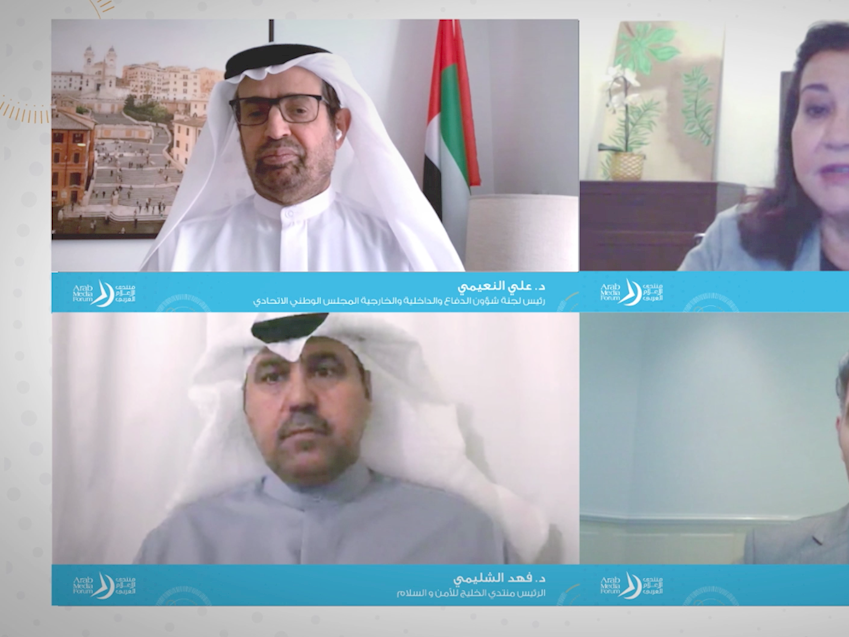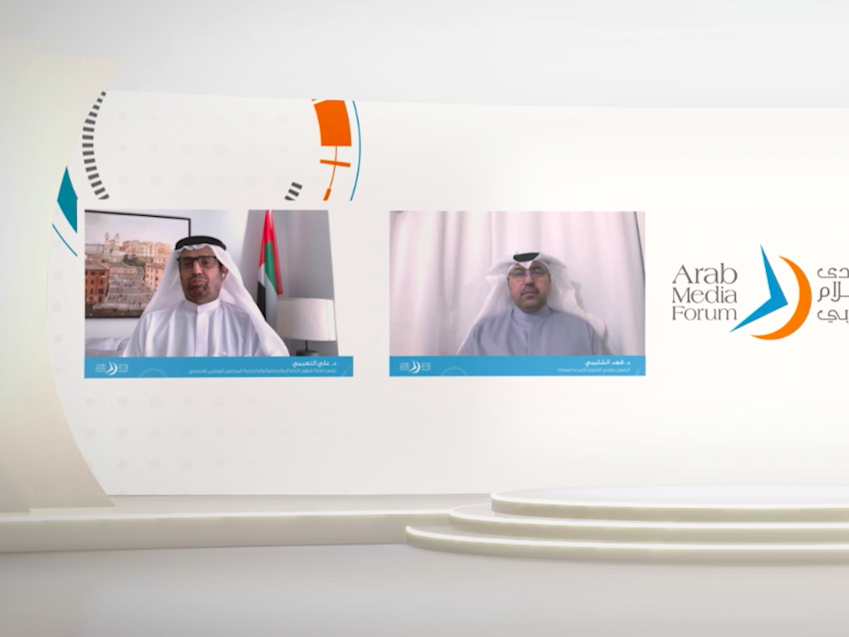December 23, 2020
Arab Media Forum explores geopolitical transformations impacting the region media
Arab Media Forum explores geopolitical transformations impacting the region mediaPanel discussion held virtually features prominent media personalities
Media professionals have no choice but to embrace the current wave of digital transformation and employ new technologies to exert greater influence in their community, speakers at the 19th edition of the Arab Media Forum said.
Organised virtually under the patronage of His Highness Sheikh Mohammed bin Rashid Al Maktoum, Vice President and Prime Minister of the UAE and Ruler of Dubai, the Arab Media Forum featured eight sessions that brought together prominent regional and international media figures and thought leaders to discuss the outlook for the region’s media sector.
A panel discussion titled ‘Arab Media: Geopolitical Transformations’ saw Dr. Ali Rashid Al Nuaimi, Chairman of the Defence, Interior and Foreign Affairs Committee in the Federal National Council, Dr. Fahed Al-Shelaimi, President of the Gulf Forum for Security and Peace and Sawsan Al Shaer, Journalist and Columnist, discussing how the media can restore its influence and contribute to the progress of the region.
The session was attended virtually by Chairman of the Dubai Media Council HH Sheikh Ahmed bin Mohammed bin Rashid Al Maktoum.
Dr. Al Nuaimi said that embracing digital media to reach audiences is no longer a choice but a necessity for media organisations. “Arab media need to mould public opinion to create a favourable atmosphere for the development of the region,” he said during a session moderated by Hussain Al Sheikh, TV Presenter, Al Hadath channel.
“Media professionals have to ride the waves of transformation sweeping the media landscape and embrace new technologies to become more influential. It is crucial that they continue to uphold the values of ethical journalism and deal realistically with changes in the region’s media,” he noted.
Dr. Al Nuaimi said that as a result of recent challenges facing the region, media organisations were largely focused on political issues and devoted far less attention to issues of greater importance to the people such as development, education, health, economy and creativity.
Echoing Dr. Al Nuaimi’s opinion, Dr. Al-Shelaimi pointed out that Arab media are facing the consequences of the Arab Spring. Prior to the Arab Spring, the media in the region provided strong coverage of development issues and was focused on telling the truth. He said in the aftermath of the Arab Spring, or what he called the “Arab Fall”, media became “polluted”.
“Instead of focusing on the needs of the region’s people, Arab media have turned their attention to divisions and conflicts in the region that have only brought destruction to the people,” he said.
On the role of media in overcoming the challenges facing some countries, Dr Al-Shelaimi said the Arab media will need to work on restoring the trust of the audience.
Panelist Al Shaer said that having a solid strategic vision for Arab media is critical to build a healthy and competitive media industry that serves the interests of the region’s people. She also pointed out that Arab governments must invest in new digital platforms to expand their reach as communication approaches change.
Held under the theme ‘Arab Media: The Future is Digital’, the 19th edition of the Arab Media Forum saw more than 10,000 people tune in to the Forum’s sessions, which were broadcast live on a special platform set up for the Forum and through the live feature on DPC’s official Twitter, Facebook and Instagram accounts. The Arab Journalism Award ceremony, which honoured 11 outstanding journalists in the Arab world, was also broadcast live.
The largest gathering of media industry stakeholders in the region, the annual Arab Media Forum has provided a platform over the last two decades to discuss ideas and solutions for enhancing the progress and prosperity of the region.







